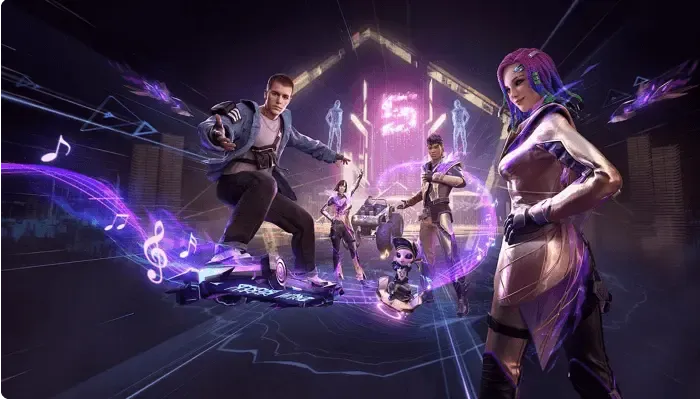
Social & Entertainment Solutions
Build an immersive digital entertainment form, integrating scenarios such as social interaction, gaming, art, and elegant gatherings into a virtual world.
Core Functions

Immersive Entertainment Scenarios
1.
An open - world social browser - based 3D sandbox where users can build lands, host virtual concerts, corporate annual meetings, online competitions and other activities.
2.
Interactive film and game experience driven by WebGL, where players can influence the endings through their choices.

Social Ecosystem
1.
Virtual Space Co - construction: Users build scenes through platform tools to jointly construct a metaverse platform.
2.
Real - time collaboration tools support multi - person collaborative design of virtual scenes.

Obtain Rewards
1.
Play - to - Earn Lite: Unlock tokens through browser - based tasks.
2.
NFT Item Interoperability: Enable on - chain NFT interoperability of network direct - play game item sets, supporting cross - game utilization.
Application Scenarios

Virtual Concert
Immersive Performances, Interactive Music Spaces, NFT Music Copyrights

Online Annual Conference
Entertainment Diversification and Reduced Venue Costs

Virtual Office
Virtual Meeting Space; Remote Collaboration Tools

Social Space
Personalized Virtual Residences, Social Communities, Virtual Identity - based Social Interaction

Metaverse Esports
Multi - sensory Interactive Design, Decentralized Community Governance, Global Seamless Participation
Advantages

Cross - platform Compatibility
Cross - platform Compatibility

Virtual Asset Reusability
Digital scenes are reusable, eliminating the need for enterprises to repeatedly incur costs for venue rental and setup. Blockchain technology reduces copyright management expenses, while NFTs automatically enforce rights, minimizing disputes.

Lightweight Operation Mode
Automated tools manage user behavior (e.g., AI intelligence), reducing manual operation and maintenance pressure. Dynamic resource allocation: Cloud services scale computing power on demand to handle sudden traffic spikes.

Multimodal Interaction Design
VR/AR + Haptic Feedback: Users can perceive virtual environment details through controller vibrations and motion - sensing devices. Enhanced Social Presence: Virtual avatars support real - time facial expression mapping to shorten the distance between users.

Personalized Experience
AI Algorithm Recommendation: Generate customized pseudo - scene dynamic narratives based on user preferences. Interaction: Audiences influence the plot development through their choices.

New Revenue Sources
Virtual Real Estate Leasing: Enterprises purchase land to develop commercial spaces and profit through rental income or transaction revenue sharing. Digital Product Sales: Monetize high - profit derivatives such as virtual apparel and NFT collectibles.

Virtual - Physical Integrated Marketing
Vertical and Horizontal Resource Integration: Users can obtain offline privileges after participating in real - estate activities. Maximize Brand Exposure: Virtual events attract global traffic and enhance the brand's international influence.

User Data Analysis
Real - time collection of user interaction data, visualized scene design with AI predicting user preferences; recommend activities or products based on historical data to increase the conversion rate

Community Co - construction
Governance Inspires User Participation: Fans vote to decide the theme or rules of virtual events, enhancing the sense of belonging. Incentive Mechanism: Creators earn commissions by selling virtual room scenes/skins, forming a positive content ecosystem cycle.
Ready to Launch Your Metaverse Operations?
Join DBiM Platform Empower your enterprise and clients with next-generation engagement, Doing Business in Metaverse!

